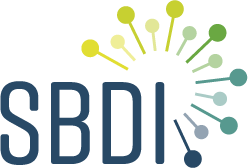The Living Atlases Community
The open source, modular composition of Atlas software makes it accessible to a wide range of user needs and a global community of developers and users is evolving – the Living Atlases community.
Atlas of Living Australia
Also known as ALA, the Atlas of Living Australia is an open-source framework aggregating biodiversity data from multiple sources. The framework is built around a set of components and tools, making it a powerful platform to collect, visualize and analyze biodiversity data. This comprehensive biodiversity data management system is now a world-class research tool.
The ALA framework has received a warm welcome from the Global Biodiversity Information Facility (GBIF) community, and the team behind ALA has worked alongside GBIF’s team to allow for cross-platform share of data, through standardization and communication between components.
A growing Living Atlases community
The ALA framework has rapidly drawn attention and curiosity, offering promising modules and tools. The open source, modular composition makes it accessible to a wide range of user needs and a global community of developers and users is evolving. Several organizations outside Australia have installed the system for their own platforms, with the help of the ALA developers and the Living Atlases Community (LAC) – a community that has grown around the framework. The effort put in by the growing community has demonstrated how international collaboration can focus and improve data delivery and access, spread technological costs and risks, and adapt to varied settings and contexts.
The LAC is funded by GBIF and by voluntary contributions from the partner organizations. The LAC aims to further the growing interest in the joint development of systems employed by this community. By making use of, and contributing to the open development of different parts of this system of systems, an efficient mechanism incorporating successively more partners has continued to grow since the start in 2013. The Living Atlases community has now (as of May 2021) 53 instances of ALA installed and in production, and several more are in development or are being discussed.
Through this active community, workshops have been and will be organized to help organizations with the installation of new instances, deployment of modules and tools for running instances and development of new innovative tools answering the needs of the community.
